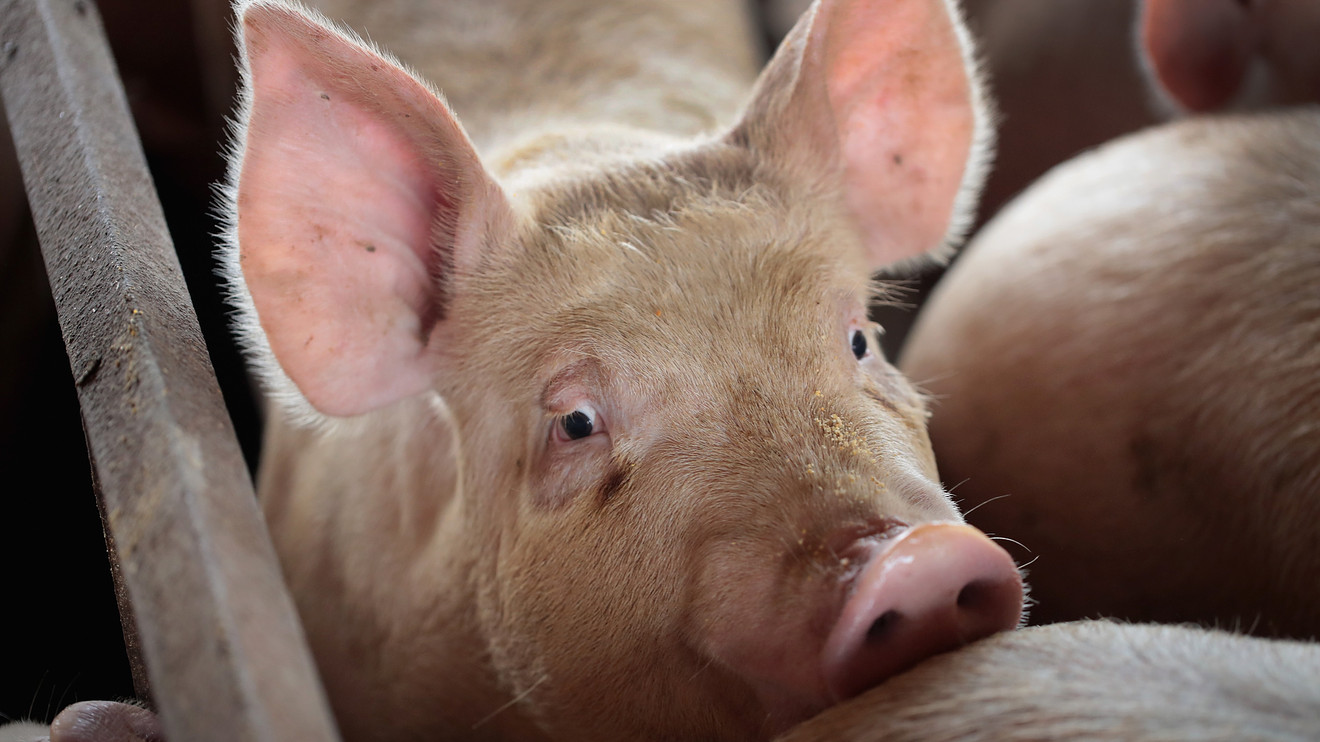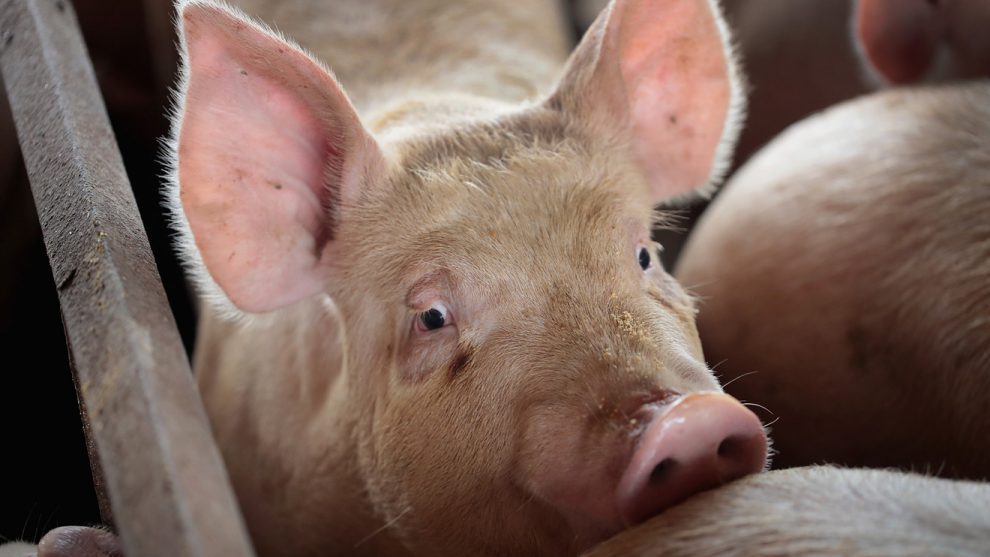
With China’s hog inventory depleted due to African swine fever, the demand for imported pork is up, which would be a good thing for U.S. meat companies except the U.S.-China trade war is getting in the way, says CFRA.
U.S. meat company executives estimate that China has lost somewhere in the range of 150 million and 200 million hogs to the disease since the first reports of the outbreak back in August 2018, about the equivalent of all U.S. pork production.
CFRA analyst Arun Sundaram cites expert reports showing it could take eight years for China’s pork supply to rebound from the African swine fever outbreak. It’s suspected that the outbreak has spread to other nearby countries like Vietnam and Cambodia, and even as far as Eastern Europe.
Chinese pork imports are expected to rise 41% from 2018 to 2019 even as consumption in the country dips about 9% for the period.
“We believe this dramatic shift in supply and demand will continue through at least 2020, which could be a tremendous opportunity for other large export markets to fill China’s shortfall,” the CFRA report said.
CFRA expects companies including Tyson Foods Inc. TSN, -0.49% , Sanderson Farms Inc. SAFM, +0.64% , Archer-Daniels-Midland Co. ADM, -0.02% , and Pilgrim’s Pride Corp. PPC, +0.09% to benefit from the disease, which Sundaram said could “change global protein production and trade patterns like never before.”
But tariffs are having a stifling effect.
“U.S. pork exports to world markets in 1Q19 were down 5% compared to 1Q18, largely due to retaliatory tariffs (from Mexico and China) or trade agreements to which the U.S. is not a party (i.e. the E.U.-Japan Economic Partnership Agreement),” the report said. “U.S. pork exports to China and Hong Kong were down a staggering 24% in 1Q19.”
The U.S. will likely beef up pork exports to other markets like Japan, Canada and Mexico now that the trade patterns have shifted, with pork exports expected to grow “a stunning” 20% in the fourth quarter, said CFRA. And the demand for beef and chicken is expected to increase, including in China where poultry imports have been halted since 2015 because of an avian influenza outbreak. But Chinese consumers will opt for the most-affordable alternative to pork, which could tear down that barrier.
Also: Beyond Meat has hit the ‘short-squeeze trifecta’ as borrow feels keep soaring
“As a result of African swine fever, we should expect higher pork processing around the globe as producers gradually ramp up production to meet demand,” wrote CFRA, which expects a 10% climb in pork prices in 2020 as China’s cold-storage inventory is eaten.
Tyson has already said that its business would benefit from African swine fever, it just didn’t know when exactly it would happen. The company said it believes it could happen in late 2019 or after.
Read: Tyson says it’s hard to tell when the pork business will benefit from African swine fever
And Sanderson Farms, which produces, markets and processes chicken, addressed some of the what-ifs on its most recent earnings call on May 30.
“If an accord is reached with China, then I do believe the United States becomes the supplier of choice to fill the protein deficit in China,” said Joe Sanderson Jr., chief executive of the company, according to a FactSet transcript. “That would benefit us more directly, and, I believe, more significantly.”
Hormel Foods Corp. HRL, +0.68% , makers of Spam and Applegate brand hot dogs, sausages and more, has raised prices, which should go into effect in the third quarter, said Chief Executive James Snee on the second-quarter earnings call late last month.
“Pricing discussions with customers are never easy, but finding the right solutions for our customers truly differentiates our company,” he said, according to FactSet.
Restaurants will also feel the pinch, with BMO Research downgrading Chipotle Mexican Grill Inc. CMG, +0.62% in late May due to the African swine fever outbreak.
“We believe the potential magnitude and duration of African swine fever impacts to margins is underappreciated and [Chipotle] is among the restaurants most at risk,” the note said.
Tyson shares have soared 53.7% for the year to date and Sanderson Farms stock is up 46.1%, but Hormel has slumped 2% for the period. The S&P 500 index SPX, -0.09% has rallied almost 15% for 2019 so far.












